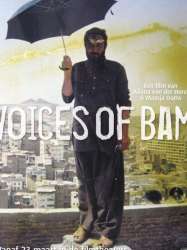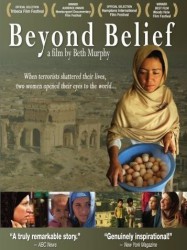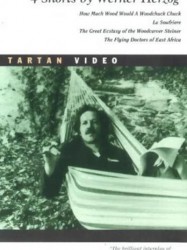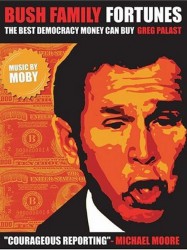Skoplje '63 est un film de genre Documentaire réalisé par Veljko Bulajić
Skoplje '63 (1964)

Si vous aimez ce film, faites-le savoir !
Skoplje '63 is a 1964 Yugoslavian documentary film directed by Veljko Bulajić about the 1963 Skopje earthquake (Skoplje, per film title, is the Serbian and Croatian spelling of Skopje). It was screened at the 1964 Cannes Film Festival, but wasn't entered into the main competition. The film was also selected as the Yugoslav entry for the Best Foreign Language Film at the 37th Academy Awards, but was not accepted as a nominee.
The filming started three days after the earthquake and lasted for four months. After that, Bulajić spent 12 months editing the footage at Jadran Film studios.
^ "Festival de Cannes: Skoplje '63". festival-cannes.com. Retrieved 2009-03-01.
^ Margaret Herrick Library, Academy of Motion Picture Arts and Sciences
^ "Vrdoljak izigrava patnika a štitio ga je admiral Mamula". Večernji list (in Croatian). 15 May 2010. Retrieved 2010-05-21.
Commentaires
Postez un commentaire :
Suggestions de films similaires à Skoplje '63
Il y a 13 films avec le même réalisateur, 8963 ayant les mêmes genres cinématographiques, 3369 films qui ont les mêmes thèmes (dont 98 films qui ont les mêmes 2 thèmes que Skoplje '63), pour avoir au final 70 suggestions de films similaires.Si vous avez aimé Skoplje '63, vous aimerez sûrement les films similaires suivants :
 , 58minutes
, 58minutesOrigine Pakistan
Genres Documentaire
Thèmes Les attentats du 11 septembre 2001, Religion, Le terrorisme, Transport, Aviation, Documentaire sur le droit, Documentaire sur la guerre, Documentaire historique, Documentaire sur la politique, Documentaire sur la religion, Documentaire sur les technologies, Documentaire sur le terrorisme, Politique, Religion musulmane, Film catastrophe, Film de catastrophe aérienne, Détournement d'avion
The film follows with the journey of the Pakistani rock star Salman Ahmad, a US citizen of Pakistani origin, asks fellow Muslims what it’s like to be Muslim in post-9/11 America.

Origine Etats-Unis
Genres Documentaire
Thèmes Les attentats du 11 septembre 2001, Religion, Le terrorisme, Transport, Aviation, Documentaire sur le droit, Documentaire sur la guerre, Documentaire historique, Documentaire sur la politique, Documentaire sur la religion, Documentaire sur les technologies, Documentaire sur le terrorisme, Politique, Religion musulmane, Film catastrophe, Film de catastrophe aérienne, Détournement d'avion
Note77%






Krakatoa (1933)
, 26minutesRéalisé par Joe Rock
Origine Etats-Unis
Genres Documentaire
Thèmes Documentaire historique, Catastrophe volcanique, Film catastrophe
Note66%





The story describes how the 1883 eruption of Krakatoa on the island blew half of the large island into the air that produced a tsunami, and an air wave that was felt seven times around the globe. The eruption also emitted tons of dust that dimmed the sun all over the world for many months.

Voices of Bam (2006)
, 1h30Genres Documentaire
Thèmes Documentaire historique, Film catastrophe
Note73%






The Soviet Story (2008)
, 1h25Réalisé par Edvīns Šnore
Origine Lettonie
Genres Guerre, Documentaire, Historique
Thèmes Documentaire sur la guerre, Documentaire historique, Documentaire sur la politique, Politique, Documentaire sur la Seconde Guerre mondiale, Film catastrophe
Acteurs George Bernard Shaw
Note80%






The Unnamed Zone (2006)
, 1h20Réalisé par Carlos Rodríguez
Genres Documentaire
Thèmes L'environnement, Documentaire sur l'environnement, Documentaire historique, Documentaire sur le nucléaire, Documentaire sur les technologies, Film catastrophe
Note63%





The Spanish film crew led by Carlos Rodriguez is following the life stories of three children - Lidia Pidvalna, Anastasia Pavlenko, and Andriy Kovalchuk - whose lives were drastically changed after an explosion at the Chernobyl Nuclear Power Station on April 26, 1986. Through the documentary, the children and their families "living perilously close to the exclusion zone around the destroyed station recount their fears, dreams, fantasies, and hopes for the future." Each child holds a "Chernobyl certificate" which bestows access to government grants and aid and is a gruesome reminder of their existential reality.

Columbia: The Tragic Loss (2004)
, 1hGenres Documentaire
Thèmes Religion, Transport, Aviation, Documentaire historique, Documentaire sur les technologies, Religion juive, Film catastrophe, Film de catastrophe aérienne

Beyond Belief (2007)
, 1h37Réalisé par Beth Murphy
Origine Etats-Unis
Genres Documentaire
Thèmes Les attentats du 11 septembre 2001, Religion, Le terrorisme, Transport, Aviation, Documentaire sur le droit, Documentaire sur la guerre, Documentaire historique, Documentaire sur une personnalité, Documentaire sur la politique, Documentaire sur la religion, Documentaire sur les technologies, Documentaire sur le terrorisme, Politique, Religion musulmane, Film catastrophe, Film de catastrophe aérienne, Détournement d'avion
Note48%






La Soufrière (1977)
, 30minutesRéalisé par Werner Herzog
Origine Allemagne
Genres Documentaire
Thèmes La mer, Transport, Volcanisme, Documentaire historique, Documentaire sur la nature, Catastrophe volcanique, Film catastrophe
Acteurs Werner Herzog, Edward Lachman
Note74%





Durant l'été 1976, la ville de Basse-Terre est évacuée car le volcan de la Soufrière est sur le point d'entrer en éruption. Werner Herzog parcourt la ville déserte et décrit la situation.
 , 1h2
, 1h2Réalisé par Gregory Allyn Palast
Origine Etats-Unis
Genres Biographie, Documentaire
Thèmes Les attentats du 11 septembre 2001, Religion, Le terrorisme, Transport, Aviation, Documentaire sur le droit, Documentaire sur la guerre, Documentaire historique, Documentaire sur une personnalité, Documentaire sur la politique, Documentaire sur la religion, Documentaire sur les technologies, Documentaire sur le terrorisme, Politique, Religion musulmane, Film catastrophe, Film de catastrophe aérienne, Détournement d'avion
Note67%





The film starts with a brief pre-title clip from presenter Greg Palast’s aborted interview with Florida Director of Elections Clayton Roberts, who walks out.
 Connexion
Connexion